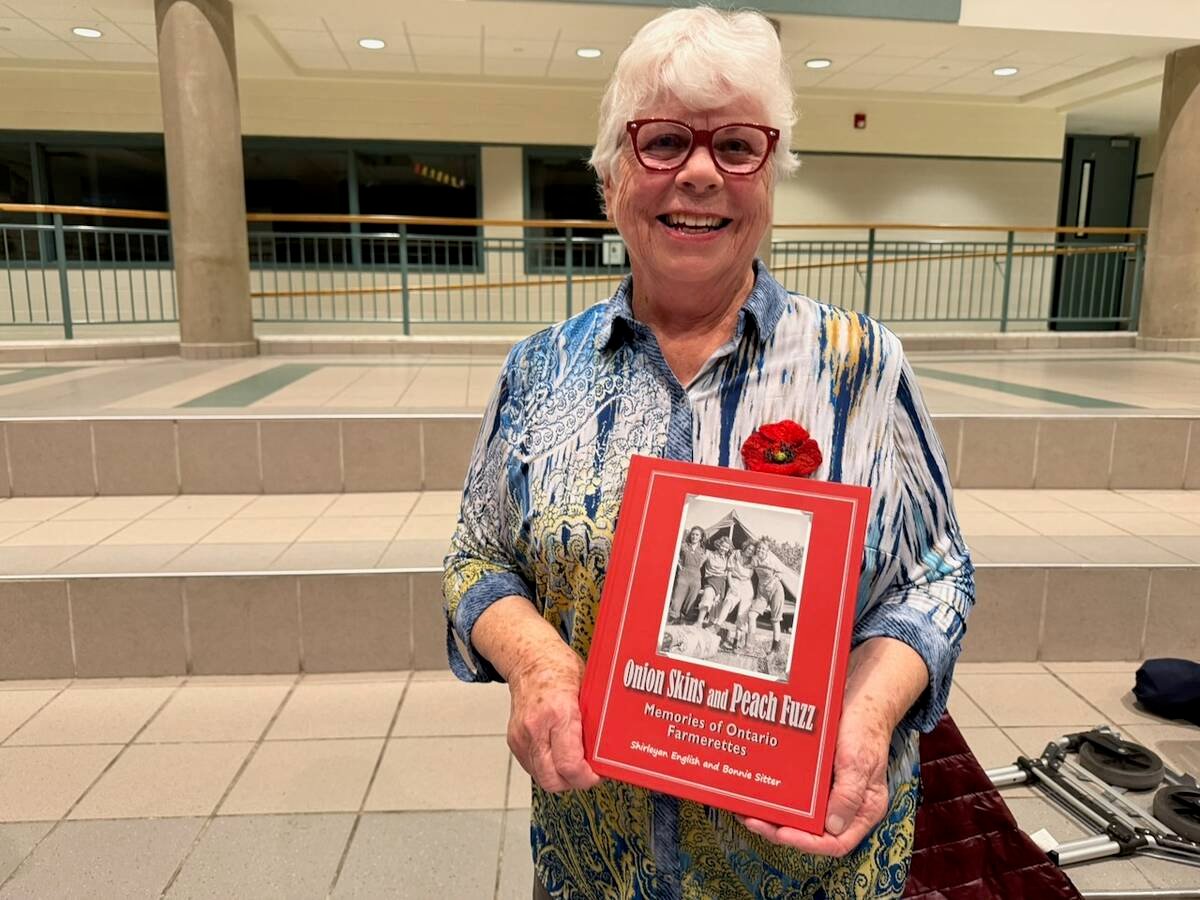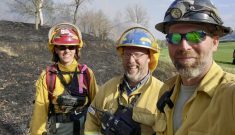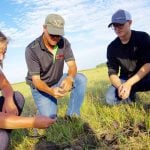The Windsor-Essex County Health Unit (WECHU) rescinded its order limiting the arrival of temporary foreign agricultural workers within three days of issuance after the province stepped in to say it was unconstitutional.
Dr. Shanker Nesathurai, acting Medical Officer of Health for WECHU, issued a letter of instruction Jan. 12 that paused the arrival of incoming temporary foreign agricultural workers (TFAWs) for three weeks. He cited an explosion of confirmed and close contact cases he said had saturated the local Isolation and Recovery Centre (IRC).
Nesathurai did not mention that the WECHU was visiting farms to test TFAWs despite limited testing capacity within the region.
Read Also

Women who fed a nation
More than 40,000 young women supported the war effort between the 1940s and early 1950s, helping grow and harvest crops amid labour shortages. They were called Farmerettes.
Why it matters: Foreign workers are a key part of Ontario’s food production system with thousands helping to plant and harvest food, especially in the fruit and vegetable sector.
“Part of the issue is, in the middle of this Omicron wave, they (WECHU) went and did proactive testing on the farms, so that caused pressure on the system when we weren’t testing other people proactively anywhere (outside of health care),” said Windsor Mayor Drew Dilkens. “We’re trying to respond in real time to the health crisis that we find ourselves in, but in some ways, it’s a health crisis of our own making.”
The WECHU testing initiative raised eyebrows, said Dilkens, adding a city block would have similar test results due to the transmissibility of Omicron.
Vanessa Calva Ruiz, a Mexican Consulate official in Leamington, assured Dilkens on Jan. 18 that most Mexican farmworkers in Essex were fully vaccinated and were offered a booster at the airport or in the community.
“There is a spotlight (on TFAWs), and I don’t think the risk right now is any higher amongst this group than there is amongst the general population. They’re 93 per cent vaccinated, and they have to arrive here with a negative PCR test,” Dilkins said. “They’re isolating in Toronto upon arrival (if they test positive, or) they’re getting to the farm and, in some cases, getting another test from the health unit.”
Outside of the pandemic and procuring additional IRC beds, Dilkens said he doesn’t usually deal with TFAW issues in Windsor.
A source told Farmtario that WECHU rescinded the letter under provincial direction, when the government advised that the order was unconstitutional and subject to lawsuits.
“It was a very strange thing because the only people that were restricted to going in the county, or the area, was temporary foreign workers,” said Ken Forth, president of Foreign Agricultural Resource Management Services.
“Anybody else — everybody else not to do with farming or anything — could come into that county.”
Nesathurai has a history of stricter-than-government quarantine mandates for TFAWS.
As Haldimand-Norfolk MOH until May 2021, he said that workers transported on buses from the airport to cramped living quarters elevated the risk of infection on-farm and in the community.
Combined with the government COVID testing schedule, the directives resulted in backlogs for worker arrivals, financial strain for producers, extended quarantine stays and delayed or missed harvest opportunities.
WECHU provided only links to its website and health ministry guidance information when asked how 46 TFAW cases ballooned into 229 close contacts for the Windsor-Essex Isolation and Recovery Centre within seven days, and whether similar restrictions were imposed on other community congregate settings.
According to the Ontario health ministry’s guidance on testing, case and contact management, released Dec. 30, 2021, fully vaccinated individuals and children under the age of 12 must isolate for five days after the onset of symptoms. The period increased to 10 days for those who weren’t fully vaccinated, were immunocompromised or hospitalized for COVID-19 related illnesses.
Regardless of vaccine status or ongoing exposure, household members are only required to isolate as long as the symptomatic person unless they develop symptoms.
The guidance said high-risk settings included hospitals, congregate living settings, including long-term care, retirement homes, First Nation eldercare lodges, group homes, shelters, hospices and correctional institutions. All other environments would be considered a non-highest risk.
The guidance mentioned molecular testing prioritization for TFAWs in congregate living settings for COVID-19 infections, but that is the only explicit mention of migrant workers in the document.
Joseph Sbrocchi, executive director and general manager of Ontario Greenhouse Vegetable Growers (OGVG), said most TFAW congregate living spaces in Essex consist of upgraded apartments or residential homes that follow pandemic safety parameters.
“There are limits to how many people can be in there,” Sbrocchi said, adding housing is subject to audits. “It’s typically not much different than a family dwelling of six or less type of thing, maybe eight.”
A new $20 million housing development in Leamington provides housing for six migrant workers per unit in a family-style congregate living space. It has ensuite bathrooms for each bedroom, a shared kitchen and a common room and now houses more than 600 workers.
“I’ll tell you all three of my kids that went to university, none of them lived in residences that nice,” Sbrocchi said of the upgraded bunkhouse systems. “And we’re still waiting for messages from the Employment and Social Development of Canada (ESDC), who has promised they’re going to give us new regulations for housing.”
Farm groups want the government to recognize vaccinated migrant workers living in residential or apartment housing qualify for the same isolation rules as Ontario residents. That would ease pressure on IRC facilities and reduce mental health impacts.
Farmtario asked if WECHU tested other bunkhouse or congregate style accommodations such as fire halls, university residences, long-term care facilities or factory workspaces.
It was told that, in the final 14 days of December 2021 and before farm testing began, the WECHU recorded 32 community congregate setting COVID-19 cases, including one with 24 collective positives.
Long-term care and retirement homes logged 27 employee-based and 45 unknown positive cases in the same time frame. The number was higher if the client COVID-19 load was included.
That totaled 128 primary COVID-19 positive cases in the greater Windsor-Essex community in 14 days.
Between Jan. 5, when WECHU noted the first agricultural workplace positive, and Jan. 12, when Nesathurai issued the letter of instruction, there were 46 agriculture-based positives, including the initial group of 31 at a Kingsville workplace.
There were also 40 community congregate setting cases, 31 employees and 84 unknowns at long-term care and retirement homes.
There were six additional migrant worker positives from Jan. 13 to Jan. 20, while community congregate settings numbers increased by 27, care home employees by eight and unknowns by 16.
Dilkens said he was vocal about a perceived lack of action by OGVG members and farm owners to resolve TFAW outbreaks in Essex early in the pandemic. Now he’s confident they have improved and he appreciates their role in helping everyone through the pandemic.
Migrant workers have a fully vaccinated rate of 93 per cent or better over Windsor-Essex’s 76.3 per cent. Farmtario asked why migrant workers are explicitly tested and seem to be considered a more significant threat to community infection rates.
“We are currently receiving multiple daily requests from the media to speak with our leadership team on the COVID-19 pandemic and other important public health topics impacting Windsor and Essex County,” responded Mike Janisse, WECHU communications manager, in an email. “Unfortunately, we are not able to accommodate them all given competing priorities and prioritize local media outlets for response.”















